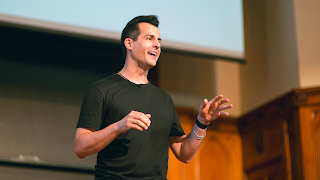Python is a general-purpose programming language that is becoming increasingly popular for a variety of tasks, including web development, data science, and machine learning. If you're interested in learning Python, then David Malan's course on Introduction to Python Programming is a great place to start.
Malan is a professor of computer science at Harvard University, and he has a knack for making complex topics easy to understand. In this course, he takes you on a journey through the basics of Python, from variables and data types to functions and control flow. He also covers some more advanced topics, such as object-oriented programming and file I/O.
The course is well-structured and easy to follow, and Malan's lectures are engaging and informative. There are also plenty of exercises to help you practice what you've learned.
If you're looking for a comprehensive and well-taught introduction to Python, then I highly recommend David Malan's course.
Here are some of the things you'll learn in this course:
- The basics of Python syntax
- Variables and data types
- Functions and control flow
- Object-oriented programming
- File I/O
- Testing and debugging
- Working with libraries
Who is this course for?
This course is for anyone who wants to learn Python programming. No prior experience is required.
What are the prerequisites for this course?
No prerequisites are required. However, some familiarity with computers and the internet would be helpful.
How long will it take to complete this course?
The course is estimated to take around 20 hours to complete. However, you may need to spend more time if you want to complete all of the exercises.
What are the benefits of taking this course?
By the end of this course, you will be able to:
- Write Python code to solve a variety of problems
- Use Python libraries to access and manipulate data
- Debug your Python code
- Create and test your own Python programs
Is there anything else I should know before taking this course?
This course is taught in English. However, there are subtitles available in a variety of languages.
Where can I find the course materials?
The course materials are available on the freeCodeCamp website. You can also find the course on YouTube.
How can I get help if I have questions?
There are a number of ways to get help if you have questions about the course. You can post your questions in the course forum, or you can contact the freeCodeCamp support team.
I'm ready to start learning Python!
If you're ready to start learning Python, then I encourage you to check out David Malan's course on Introduction to Python Programming. It's a great way to get started with this powerful language.
Here are some additional resources that you may find helpful:
- freeCodeCamp: https://www.freecodecamp.org/
- Python Documentation: https://docs.python.org/3/
I hope you enjoy the course!
